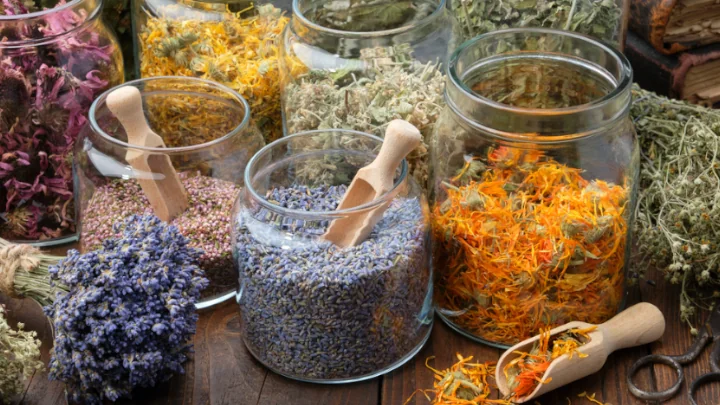Nature’s Secrets: Embracing Herbal Wellness in Ramadan

Are you ready to embark on a journey through the realm of herbal wellness during the sacred month of Ramadan? In this exploration, we’ll uncover the gentle wonders of herbal remedies, seamlessly weaving into the fabric of fasting, providing a natural path to holistic health. Discover more below.
1. The Subtle Symphony of Herbs
In the hustle and bustle of contemporary life, the whispers of nature often fade into the background. This Ramadan, let’s extend an invitation to the subtle healing energies of herbs.
Picture sipping on a comforting blend of peppermint and chamomile tea, easing the fasting process and offering nature’s remedy for digestive serenity. Allow the gentle warmth of the herbal infusion to soothe you from within.
Consider the rich tapestry of herbal traditions that span across cultures and civilizations. These traditions recognize the profound connection between nature and well-being.
As we fast during Ramadan, the infusion of herbal teas becomes not only a source of physical relief but also a reminder of the healing potential ingrained in the natural world.
2. A Pause for Herbal Reflection
In the midst of spiritual contemplation during Ramadan, find solace in the ritual of preparing and enjoying herbal remedies.
Let the aromatic dance of herbs in hot water be a mindful pause—a moment of connection with nature’s offerings. This simple act serves as a balm for the stresses of the day, fostering a profound sense of calm during the fast.
Take a moment in your daily routine to breathe in the fragrant notes of herbs. Whether it’s the earthiness of sage or the citrusy hint of lemongrass, each herb carries a unique essence that can transport you to a space of tranquility.
Incorporate this herbal reflection into your daily routine, allowing it to become a cherished part of your Ramadan journey.
3. Nature’s Diversity, Your Wellness Ally
Herbs unveil themselves in various forms, from teas to essential oils. This Ramadan, let’s venture into the diverse realm of herbal wellness. Consider the calming embrace of lavender essential oil, diffusing its essence to create a serene atmosphere within your home.
Explore the world of herbal diversity by experimenting with different herbs to find what resonates with you. Create your own herbal blends, combining the soothing properties of chamomile with the invigorating notes of mint. Let your senses guide you as you embrace the richness of nature’s palette.
4. Harmonizing Herbal Notes at Iftar
As the sun sets and you break your fast, infuse herbal goodness into your iftar. A cup of herbal tea becomes a gentle bridge from fasting to feasting, offering hydration and nourishment.
The act of savoring an herbal blend subtly signals your body’s transition, embracing the spirit of Ramadan.
Consider incorporating herbs into your iftar dishes. Fresh herbs like basil and cilantro can add vibrant flavors to your meals while contributing additional health benefits.
The combination of herbal infusions and herbal-infused dishes creates a holistic approach to nourishing your body during the month of Ramadan.
That said, when is Ramadan 2024?This year, Ramadan is set to begin on the evening of Sunday, 10 March and end on Tuesday, 9 April. Despite this, the Islamic Calendar follows the lunar schedule rather than the solar one, meaning these dates are subject to change.
Conclusion
As we tread the path of Ramadan, let’s not overlook the whispers of nature. Herbal remedies, gentle and unobtrusive, offer a silent symphony that harmonizes with the spiritual tune of this sacred month. May this Ramadan be a journey of rediscovering nature’s secrets and intertwining spiritual and physical rejuvenation.





